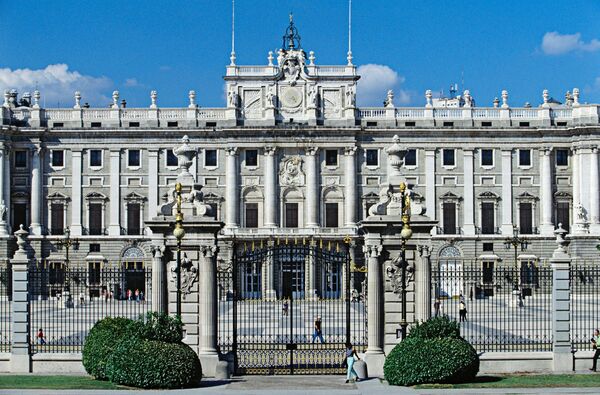MOSCOW. (RIA Novosti political commentator Andrei Fedyashin) - On January 1, 2010, Spain will take over the rotating six-month presidency of the European Union. Compared to Sweden, which it will succeed, it will have far fewer powers.
In accordance with the Lisbon Treaty approved in November, the Council of Europe, the supreme governing body comprising the heads of the EU states and governments, will have a permanent president. Herman Van Rompuy, the former Belgian Prime Minister, will begin his first 2.5-year EU presidential term on January 1, 2010.
In fact, Spain will only preside at the EU Council's meetings of foreign (and sometimes other) ministers, which is held to prepare the regular spring and fall EU summits and to coordinate EU foreign policy.
But the Spanish have never been too shy about breaking with formalities. Until Europe gets used to having a permanent president, Van Rompuy will share his powers with the country that once called Belgium the Spanish Netherlands.
Spanish Prime Minister Jose Luis Zapatero has promised that the Spanish presidency will leave a noticeable mark on the history of the EU, despite this duality of power.
It is said in Brussels that the Iberian presidency may propel the EU towards the signing of a new partnership and cooperation agreement with Russia to replace the PCA, which was prolonged several times after it was due to expire in late 2007.
Europe also needs a new PCA agreement with Russia because of the unsolved problem of the Ukrainian gas and oil corridors linking Russia with the EU. Shortly before Spain took over the EU presidency, Russia warned that Ukraine's unfriendly moves could theoretically complicate oil deliveries to Europe via the Druzhba pipeline.
Although the EU authorities do not think the oil problem could be as acute as the gas one, they are "ready to closely monitor the situation."
Spain, an EU leader in terms of renewable energy resources (solar and wind energy), intends to advocate for the introduction of these technologies in the EU.
Some EU diplomats say a new PCA agreement could be signed during Spain's presidency. The EU is coming to see that Russia has other options, as was shown by the commissioning ceremony attended by Prime Minister Vladimir Putin of an oil terminal in Russia's Primorye Territory in the Far East. The EU is not doing Russia a favor by buying its oil and gas. However, Brussels is not fully convinced that it will have no energy problems with Russia either.
The "Roman component" of the new EU presidency will certainly affect the organization's foreign policy. Spain is preparing to turn the EU in the direction the international organization previously addressed rarely and unwillingly, Latin America, where Madrid has considerable ties, trade and economic interests.
Spanish Prime Minister Zapatero first outlined, and Foreign Minister Miguel Moratinos later elaborated, the Latin American strategy of Spain's presidency. Spain will encourage Brussels to expand political, trade and economic relations with all Latin American countries.
In particular, Spain would like the EU to develop trade with Colombia and Peru, its former colonies, and to sign an agreement of association with all Central American countries.
Spain believes that the EU should have initiated dialogue with Cuba long ago and encouraged the U.S. to lift its embargo on the island. It has also announced the intention to use its EU presidency to facilitate the establishment of a Palestinian state in the Middle East.
The first thing Spain will do to rehabilitate the EU economies is to convene an extraordinary EU summit in February to discuss its economic strategy and economic revival measures. The EU economy has started growing again, but it has not yet fully overcome the consequences of the global crisis.
The immediate and biggest threat facing Spain will be the upcoming strike by the employees of the European Commission and other EU agencies. They have threatened to paralyze Europe unless they are given the 3.7% raise in salaries they were promised in October.
Germany, France, Britain, the Netherlands and Poland say the raise is excessive amid the general decline in salaries in the EU, and insist that it be limited to 1.8%. But the trade unions of the EU clerks have announced that this meager increase would cost the EU dearly. They have 45,000 members, more than the Belgian army has service members, and could easily bring life in Brussels to a standstill.
The opinions expressed in this article are the author's and do not necessarily represent those of RIA Novosti.



